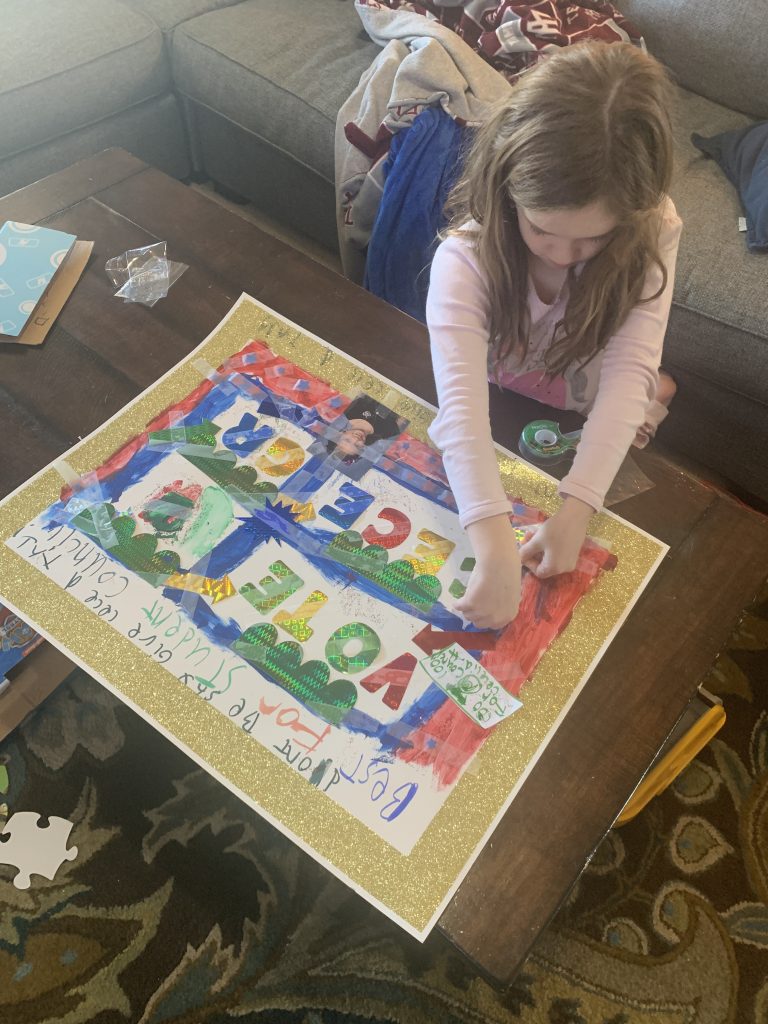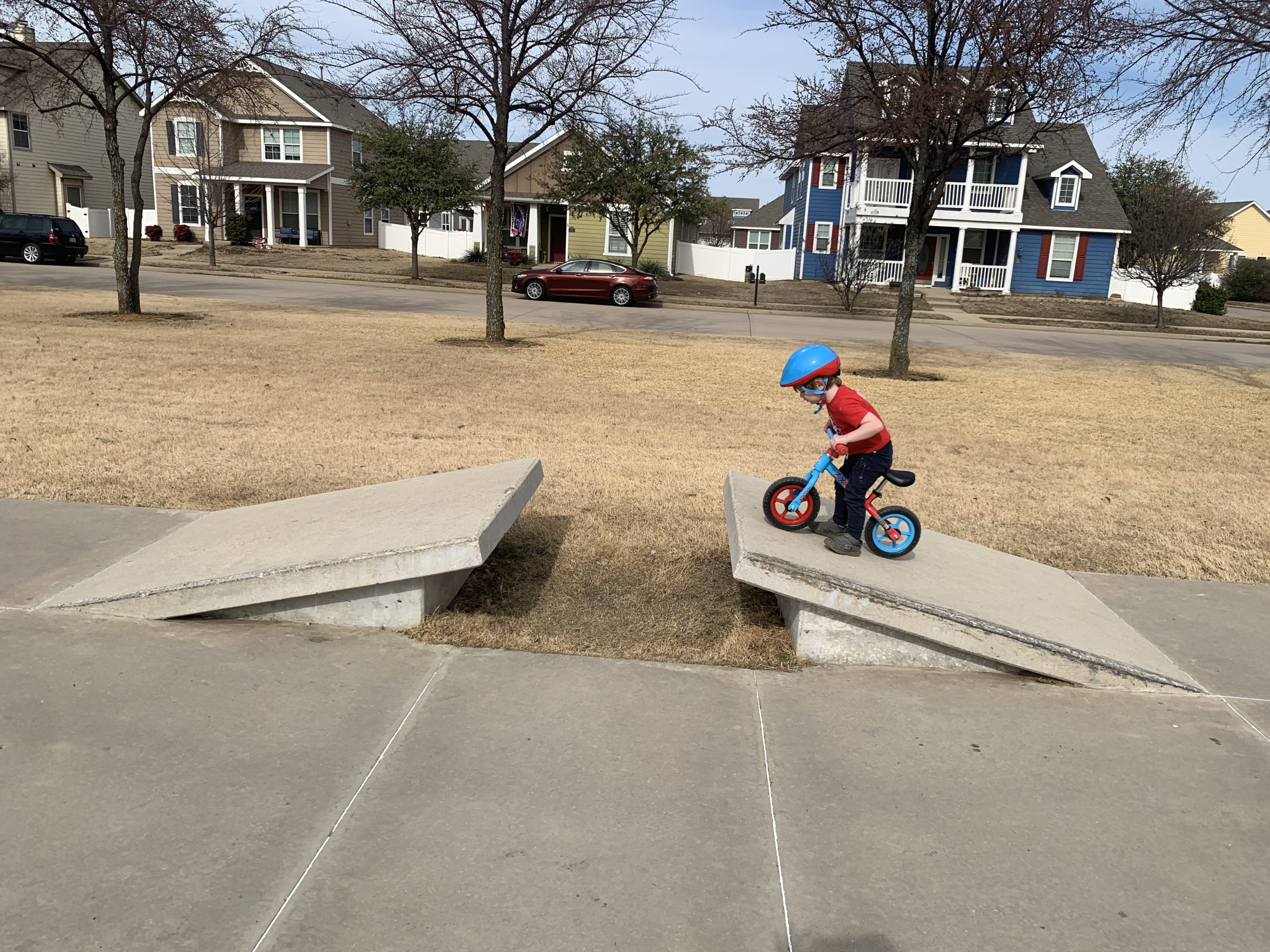My daughter came home from school the other day bouncing off the walls. Student council elections were coming up, and this was the first time she’d get a chance to run. Even though her campaign poster and speech weren’t due until the next week, she wanted to finish them that night. And she didn’t want any help from us. After initially pleading to have her at least outline the poster first, all attempts at guidance were abandoned. My role was reduced to handing her the tape (and a lot of it).

I was proud of her, but more importantly, she was proud of herself. Which is why, when the results were announced and she didn’t win, I wanted to approach the situation carefully. Sure, this was only a second-grade election, but it was important to her. I didn’t want this to discourage her or hurt her self-esteem. At this point, I realized my role as Mom was to do more than just hand out tape—it was to turn this loss into one of those much-discussed “life lessons.”
But how?
I had a moment of panic wondering what I could say that was “right” in the moment. I briefly considered searching for Daniel Tiger episodes on the topic. But then I remembered I have really smart friends, one of whom introduced me to the idea of “growth mindset”. Bingo.
What is a Growth Mindset?
For parents, growth mindset, as established by Carol Dweck, Ph.D., is about developing your kid’s belief that talent or success comes from things like hard work, good decisions, and learning from mistakes. The idea is that kids with a growth mindset are more persistent, bounce back better after failure, and can achieve more. The opposite of a “growth mindset” is a “fixed mindset.” Fixed mindsets see things like intelligence as “fixed” traits you either have or don’t have and may lead to behaviors like cheating in order to succeed.
If all of this sounds familiar, it’s probably because growth mindset is something you’ve heard about, even if you didn’t know the name. For example, if you’ve ever seen a meme about the number of times you get knocked down versus the number of times you get back up, then you already understand some of the basic principles of growth mindset. But memes, while inspirational, don’t actually raise your kids.
So, how do you take lessons beyond the memes, and use them to help your kids thrive? Here are a few ideas based off the growth mindset principles:
Encourage Your Kids to Have Fun with Challenges
At some point in your mom-ing, you’ve likely heard the sweet tones of your child whining, “It’s too hard!” Sometimes, the challenge they face is passing calculus; other times, it’s finding their shoes in their own closet.
Regardless of the actual hardship, encourage your kids to see challenges as an opportunity to have fun and try new ideas. Ask your seven-year-old to devise a new storage system in her closet for easier shoe retrieval. Encourage your teenager to experiment with different scents while studying to see if any of them help him focus better. Their experiments may not work, but at least it got them thinking, and who knows where that could lead?
Cheer Their Efforts as Much as Their Results
Between standardized tests and college tuition, it’s understandable why so much attention is given to grades and test scores. But for kids to have a growth mindset, it should be about the journey as well as the destination.
This doesn’t mean outcomes aren’t important. Yes, your high schooler does actually need to pass all of their classes to graduate. However, for kids to be resilient, they need to know their efforts matter. Build them so that they can be proud of themselves for giving it their all, even if it doesn’t work out the way they want.
Talk About Failure Openly
Sara Blakely, the founder of Spanx, has talked about how her dad would ask what she and her brother had failed at while sitting around the dinner table. It was weird at the time, but ultimately it helped redefine failure for her.
As moms, we’ve all had our share of failures. But we survived. We learned. And now we can help our kids by letting them know that. Take time to talk about the college you didn’t get into, the friendship that didn’t last, or the really bad haircut choice. And ask your kids about their struggles. Failure can hurt but learning from it can help take away the sting.
Use “Yet” More
Think of a goal you’ve struggled with. Now add “yet” to it. What does that do? “I haven’t run a marathon…yet.” “I haven’t gotten out of debt…yet.”

For kids, “yet” can be the one word that allows them to see the possibilities in themselves. “I’m not a superhero…yet,” could turn a four-year-old into an Air Force officer. Or “I don’t have friends…yet,” could encourage a shy child to join a club they love. “Yet” is a powerful word. In one of Carol Dweck’s talks, she emphasizes that using the word “yet” opens kids up to possibilities. It puts them on a learning curve with a path to the future.
As moms, we can’t control the challenges our kids will face. We can, however, shape their mindsets. Build your kids to see the value in learning and growing; that it’s important to focus on getting better instead of just being smart or talented. For me, in that moment, standing there with my daughter, I ultimately decided to try and help her build a growth mindset. I told her that losing stinks, and I was proud of her initiative and her hard work. And even if it didn’t happen this year, there would be more opportunities.
I don’t know if it helped (she did roll her eyes at me), but I gave it a shot. After all, I’m not a mom who always knows the right things to say…yet.













